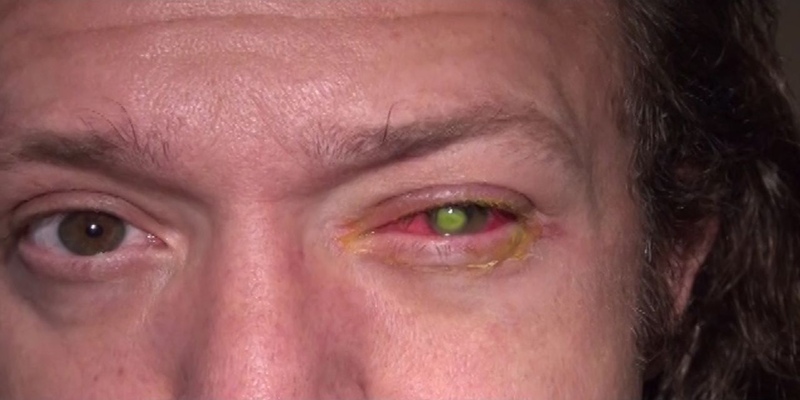Have you never heard about this disease before? It is the inflammation of your GIT tract, ranging from mouth to ulcer. It commonly inflames the intestines, causing weight loss, fever, chronic diarrhea, and other complications.
How this disease is caused? It can be an autoimmune disease or due to the genes or smoking. Stress and some foods make the symptoms of this disease even worse. Remember that people on certain medications and high-fat diets are more likely to develop this disease.

What is Crohn’s Disease?
Don’t know anything about Crohn’s disease? Don’t worry, we will tell you all. It is the inflammation of the gastrointestinal tract. The disease can be due to smoking, genetics, etc.
It especially affects the small and large intestines in the digestive tract. The name comes from American doctor Dr Burrill Crohn, who described it for the first time in 1932. Some common types of this disease, like ileitis, are discussed below.
Types of Crohn’s Disease
The symptoms differ according to your disease type. Here, we will discuss the types of Crohn’s disease.
Ileocolitis:
It is considered the most common type of this disease, which generally causes the inflammation of small and large intestines.
Ileitis:
As the name indicates, ileitis causes inflammation in the ileum, a part of the small intestine.
Gastroduodenal:
It is another type of Crohn’s disease. It causes inflammation and irritation in the duodenum. If you don’t know duodenum is the upper part of the small intestine.
Jejunoileitis:
The last type of Crohn’s disease is Jejunoileitis. As the name tells us, it causes inflammation in the jejunum. The jejunum is the upper half part of the small intestine.
Crohn’s Symptoms: Know What to Watch For
You might wonder what are the symptoms of the Crohn’s disease. How would you know that you might have developed it? So here we will discuss it in detail.
Causes
- Autoimmune Disease
- Genes
- Smoking
Symptoms
Crohn’s disease is usually asymptomatic, but not in every patient. The patients experience intense to mild symptoms. Here are some common symptoms of this disease that you must watch for:
- Abdominal pain
- Chronic diarrhea
- Loss of appetite
- Weight loss
- Fever
- Abnormal skin tags
- Anal fissures and fastulas
- Rectal bleeding
Diarrhea:
The intestinal lining is inflamed in this disease and cannot absorb the fluids properly. It makes your stools watery and causes diarrhea and more frequent bowel movements.
Abdominal Pain:
You may experience pain for different reasons and mechanisms; if you have Crohn’s disease, it is commonly due to blockage, gut distention, and intestinal inflammation.
Loss of appetite:
IBD changes the hormone levels, which play a role in making you feel full. The digestion is also improper, so you feel full and experience loss of appetite.
Fever:
Fever is a common Crohn’s symptom because of the intestinal inflammation. It can also be due to the infections or the medications you use to cure the disease. You may experience chills and night sweats.

Rectal Bleeding:
It is because of chronic diarrhea, which irritates the already sensitive tissues. The area is inflamed and becomes so sensitive that it starts bleeding.
Symptoms Beyond The Intestine
Crohn’s disease or inflammatory bowel disease is a GIT problem, but it can also cause some systemic symptoms outside your GIT tract. These symptoms may include:
- Mouth sores
- Swollen joints
- Rashes
- Painful joints
- Fatigue
- Night sweat
- Abnormal menstrual cycle
- Osteoporosis
Kidney Problems:
Crohn’s disease can also affect your kidneys, and it can cause kidney stones and uric acid stones because the severe diarrhea you experience makes the urine acidic, leading to the formation of stones.
Liver complications:
It may include:
- Fatty liver disease
- Gallstones
- Hepatitis
- Pancreatitis
Joint Inflammation:
Crohn’s disease can also cause joint inflammation. It can be in axial or peripheral joints, causing inflammation and joint pain.
Skin Problems:
Skin problem is another complication of this disease, which is not very common but possible. The skin problems can be:
- Skin tags
- Mouth ulcers
- Erythema nodosum
- Pyoderma gangrenosum
Bone Loss:
Bone loss is a common complication of this disease. The reasons can be Crohn’s disease or the medicine you are using.
Vitamin D deficiency:
As Crohn’s disease da, ages the small bowel, your body may not be able to properly absorb the vitamin D and calcium, which makes your bones brittle and weaker.
Eye Problems:
It is another complication of this disease. The possible conditions include scleritis, episcleritis, uveitis, etc. If you experience any of these symptoms, which are either GIT or outside GIT, you should be conscious. You should consult the doctor for timely treatment and save your life.
Diagnosis Of The Crohn’s Disease
Here are some ways of diagnosis of this disease. If the disease is diagnosed timely, proper treatment can be started.
- Blood tests: The blood test checks the increased number of white blood cells due to inflammation or infection. It also checks the decreased amount of red blood cells and even anemia. One in three Crohn’s patients usually have anemia.
- Stool test: it is another common Crohn’s disease test. It tests for the bacteria and parasites in your stool sample. We can check the infections causing chronic diarrhea.
- Colonoscopy: The next Crohn’s diesse test is the colonoscopy. It is used to examine your colon, or maybe a sample is taken to perform the biopsy to check for inflammation.
- CT scan: A computed tomography scan captures the image of your digestive tract. It also tells you about the severity of intestinal inflammation.
Crohn’s Disease Treatments
Crohn’s disease treatments vary according to the severity of the disease. The common treatment methods include:
- Antibiotics
- Biologics
- Bowel rest
- Corticosteroids
- Immunomodulators
- Surgery
Conclusion:
Don’t know about Crohn’s disease, we have told you everything in this article. It is the inflammation of GIT. It especially affects the small and large intestines of humans. You should watch for the common signs and symptoms: diarrhea, fever, and abdominal pain.
So, the next question arises: how can the disease be confirmed or diagnosed? The stools and blood tests, CT scans, and colonoscopy diagnose it. If you have developed this disease, don’t worry; it is curable with medication and surgery.




